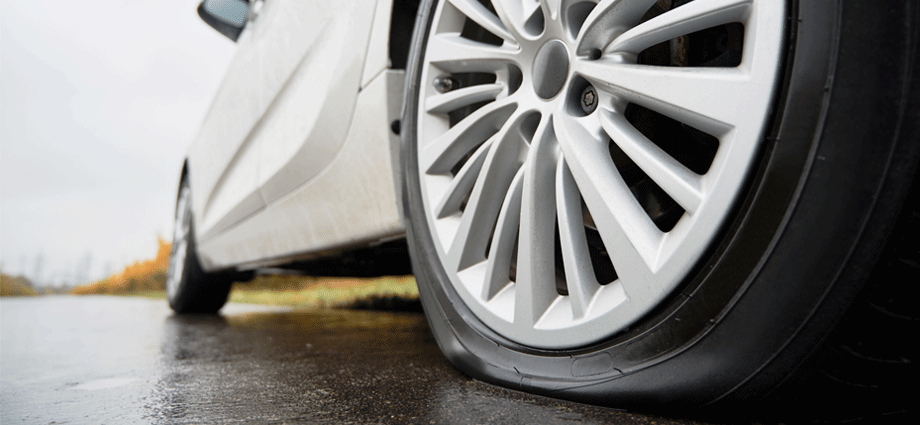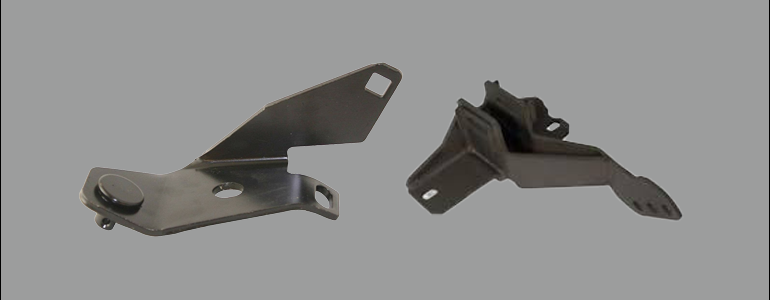As a car driver, you will have experienced a flat tyre in your lifetime. A flat or punctured car tyre is an unfortunate event, which can endanger the life of the driver and your vehicle as well. The most common cause of punctures is when glass or other sharp items pierce the tyre, allowing the air to escape.
Although there is no foolproof solution to stop flat tyres. However, regular tyre maintenance and knowledge of the underlying causes can assist to lower the incidence. Here are a few common causes of a flat tyre that can help you avoid them.
The Major Causes of a Punctured Tyre
1. Road Situation:
Be cautious when driving and try to avoid potholes, severely uneven pavement, and debris (including glass and nails). All of these things can harm your car’s axles, wheels, and undercarriage.
2. Over-Inflated Tyres:
The added pressure on the tyre is risky. At worst, it may result in an abrupt loss of inflation pressure, and at best, it may cause tyres to become rigid, by making them more prone to punctures if you drive over a pothole.
3. Damaged Valve-Stem:
The tiny tyre protrusion used to inflate your tyre is called the valve stem. It lets air out when it becomes loose, clogged, rusted, or damaged. When inspecting your tyres, examine the valve stem and make any necessary repairs or replacements.
4. Worn Tyres:
Check your tyres for wear because this can cause major accidents by increasing the risk of punctures, rapid loss of inflation, and longer stoppage at long distances.
5. Vandalism:
It is preferable to park your car in a safe location to avoid vandalism and allow criminals to take the air out of your tyres.
6. Sudden Damage:
There are occasions when a flat tyre cannot be avoided. Always drive cautiously, and if you have an unexpected blowout on the road. Then, follow the correct procedures: don’t slam on the brakes; instead, let the car slow down naturally while veering to the side of the road; turn on your hazard lights, and do not try to change the tyre yourself unless you are several feet away from moving traffic.
7. Separation of tyre and rim by Collision with another Object:
This kind of separation frequently happens when a tyre busts a curb or when a wheel is abruptly rubbed against a sidewalk when parking. Over time, there is a steady loss of air due to the tyre’s tiny separation from the rim.
In most cases, this is not something you can fix on your own. But a skilled auto mechanic from your nearest car repair workshop will have the equipment to handle this quickly.
8. Tyre Bead Leaks:
The edge of the tyre that touches the rim, known as the tyre bead, will occasionally leak air. Over time, a flat tyre may result from this leak. Spray your wheels and valve system with soapy water to see whether the tyre bead is the issue. A tyre bead leak is most likely present if a constant stream of small bubbles appears.
9. Alloy Wheel Leaks:
Aluminium-wheeled vehicles should have their tyre pressure checked frequently. Bring your car to a mechanic for a professional repair if leakage starts to occur recurrently.
10. Due to Heat:
During the summertime, the mercury rises and causes the tyres to enlarge. It increases the internal pressure in the tyres, which can increase the risk of blowout or leak. So, it is advisable to check the tyres before getting out on the road to check the tyre pressure.
How to Tell if your Car tyre is Punctured or Not?
The depth of the penetration and the type of damage determine how serious a tyre puncture is. The following signs of a tyre puncture include:
- Car pulling to the left or right as if being dragged in the direction
- Wobbly or shuddering wheels
- Loss of tyre pressure
- Immediate tyre deflation
- Difficulty in steering the wheel
Simply ignoring these warning signs may cause unnecessary tyre damage and component failure. A bigger concern is that you could be dangerously harming both you and your passengers.
Things to Do to Avoid Getting Your Car Tyres Punctured
Punctured car tyres are nothing but a nuisance to drivers. Here are a few tips to avoid them.
- Driving safely
- Inspecting your car tyres on a regular basis
- Taking your car for regular maintenance
- Check your tyre pressure.
- Do not overload your vehicle.
- Get your tyres rotated.
Parting Note
Most drivers will experience a tyre puncture at some point in their driving career. The majority may be avoided by parking and driving cautiously, and some can be quickly fixed with the appropriate tools. But it is recommended to get your car tyre puncture fixed by a car repair shop. They can give you guidance and an overall car check-up.





